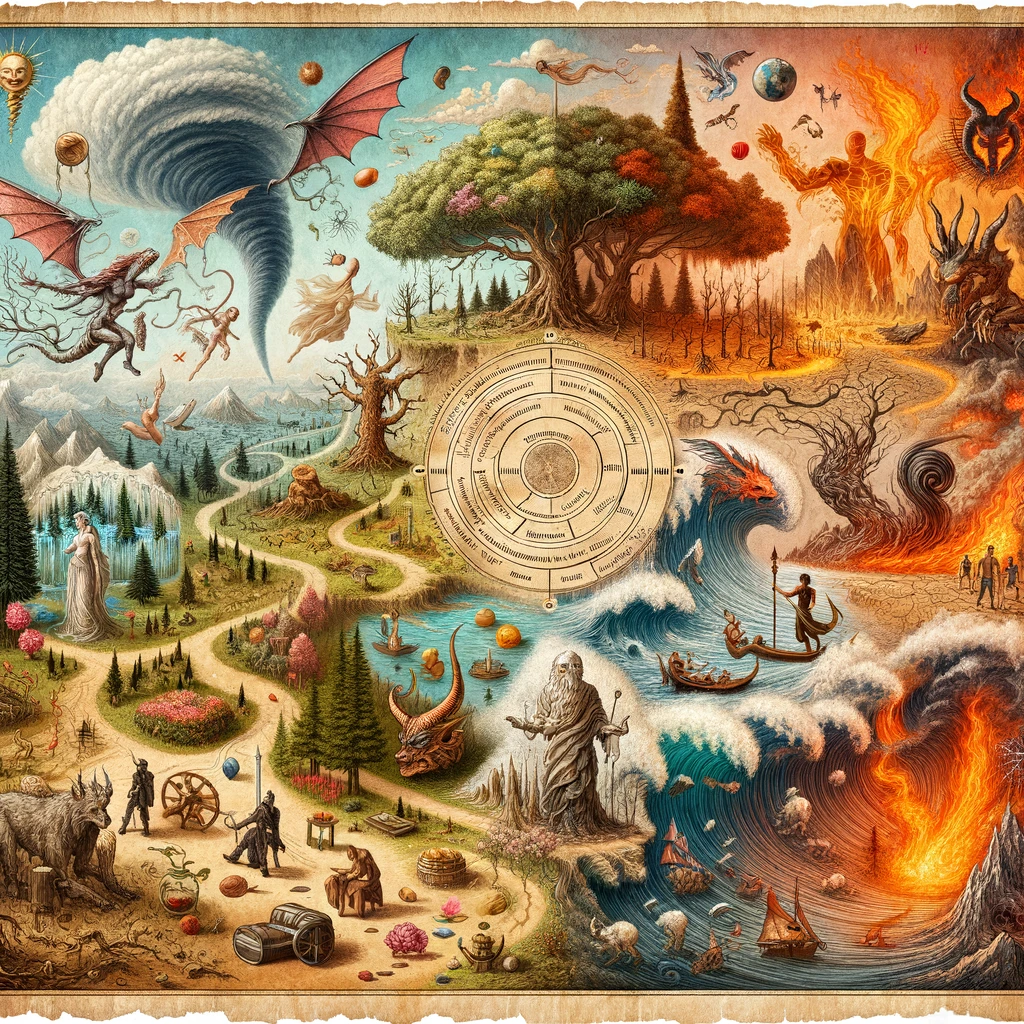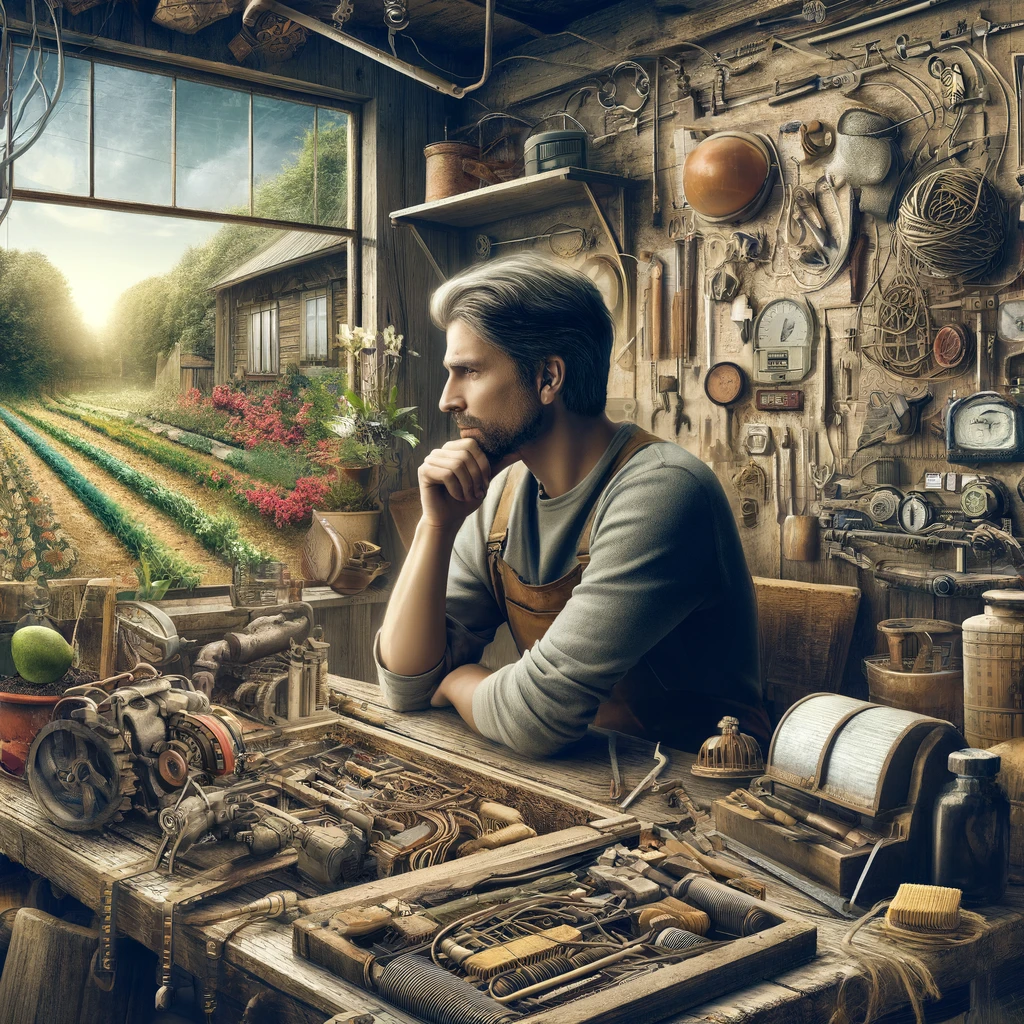Beyond the SEO Noise
Self-reliance is a term that resonates deeply with the pioneering spirit, but its essence stretches far beyond the popular portrayals of homegrown vegetables and hand-chopped firewood that dominate online searches. True self-reliance isn’t confined to these visible activities; it’s about cultivating a resourceful mindset that thrives on problem-solving within the unique challenges of our environments. This involves a cycle of trying, failing, and succeeding through adaptation and perseverance (and boy, is that tested often). Self reliance is not self sufficiency or is it?
Did famous forest dwelling YouTubers invent the term? Not quite. Ralph Waldo Emerson, that transcendentalist thinker from the 1800s, penned an essay called “Self-Reliance” back in 1841. It’s all about how we’ve got to stop just going with the flow and trying to be like everyone else. He wholly refers to the idea of trusting your gut and thinking for yourself.
Being self-reliant means you trust your judgment and are willing to learn from both your experiences and the vast reservoir of collective human knowledge. It doesn’t mean shunning professional advice; rather, it’s about discerning when to integrate it into your own context-specific solutions. For instance, when farmers depend solely on big-agri-seed-and-fertiliser for inputs, or doctors feel compelled to prescribe only mainstream medications, they move away from self-reliance. It’s about independence from the ‘standard’ solutions and having the confidence to apply customized responses to your own life and work.
My Personal Journey and View of the issue.
Am I self-reliant? I grapple with this question daily as I delve into the depths of survivalism, ecology, and technology through extensive reading and observation. My curiosity is unbounded; it drives me to explore diverse topics such as wildfire behavior, which I studied exhaustively during the fire season, absorbing every piece of information on how fires start, spread, and the factors that influence them (you know, fuel, weather, slope etc). Some friends and family might say I over-analyze, but I see it as applying a scientific approach to everyday problems—testing theories, adapting strategies, and continuously learning. This ongoing quest for knowledge might not align with the rugged, solitary image often associated with ‘self-reliance’ in popular media. I use tools like spellcheckers for my writing and embrace modern conveniences where they serve a purpose. Yet, my self-reliance manifests in the trust I place in my judgments and solutions, which has significantly grown over the years. I’m more confident in my ability to predict outcomes and make decisions that are right for my context—far from snobbish, I believe it’s a testament to the essence of being truly self-reliant.

Self Reliance ≠ Self Sufficiency. Well…
Back in ’16, I first brushed up against permaculture and, like most rookies, figured it was all about digging in the dirt and growing spinach. But it took good friend Charl, a sage in the world of permaculture, to open my eyes. Permaculture isn’t just gardening; it’s a deep-rooted philosophy, a framework [of principles, guidelines and culture] for crafting a space that’s good for all living things, big and small, that’s meant to last forever, in contrast to conventional agriculture. It can be applied to designs of any size from balcony to major farms.
Now, let’s get something straight—being self-sufficient isn’t the same as being self-reliant, no matter how the internet spins it. Sure, search engines (even the slightly bettersafer ones) gobble up these terms like candy, but don’t get it twisted. I’m not Emerson, and I’m not living off the land at full tilt, so I’m just tossing my two cents in here (inflation excluded).
Self-sufficiency? It’s about managing on your own, making do without a pit stop at the nearest store every time something runs out. In the days of yore, folks were self-sufficient by necessity, not choice. No convenience stores, no cell phones—yet somehow, they managed just fine. Today, self-sufficiency’s taken a different turn. Many of us are choosing it to reclaim control over our basics—food, water, shelter—since it seems like those at the top aren’t watching out for the little guy anymore. And sure, those with the means can jump into the self-sufficiency pool with both feet, setting up their off-grid paradise with a phone call and a checkbook. That’s their path, but it’s not really walking the self-reliant walk. No offence intended. (offence is taken, not given).
The underprivileged, though, have been playing this self-sufficiency game for aeons, out of sheer need and without knowledge of the term itself. Lacking the cash for high-end healthcare or fancy tech means you get inventive. You either sink or swim—thrive on your wits, even if it doesn’t look like success to the rest of the world. Can we define what success really means? Not now, not without hurting many feelings.
Mastering self-sufficiency isn’t an overnight thing. I’ve been at it since I lost my job, which, by the way, came after a decade-long bout with stress related illnesses and toxic work environments. And guess what? I’m maybe halfway to true self-sufficiency, if that. What I’ve learned is this: it’s a constant reevaluation of needs versus wants and figuring out how to meet them.
Can I create or grow it? Will it disrupt something or someone else if do? No? Then I’ll make it. If not, I’m okay with a fair trade or purchase. This isn’t to say we abandon fiat currency. Money means we can contribute back to our communities, support local economies, and get what we need from those who make or do it better than we do.
So yes, self-reliance and self-sufficiency aren’t identical twins, but they’re definitely related. They’re about the confidence to start things, keep ’em running, and fix ’em up when they go kaput. They’re about constantly learning, tweaking, and not being too proud to admit when you’ve goofed. They’re about weathering the highs and lows, and trust me, you’ll hit both. They’re about relentless scrutiny of your habits and health, adjusting as you go.
Wanting to throw in the towel? Normal. Actually doing it? Not an option.

not what we thought it would be. – Marlon
Thank you for reading. Between these articles and YouTube, I share what I learn and provide insights on our life and methods (for entertainment, information and referential purposes). I don’t want ads on this website, so this doesn’t make me a cent. If you like my articles, and/or videos, consider sharing it with nice people — or better, supporting me on my Patreon page.

